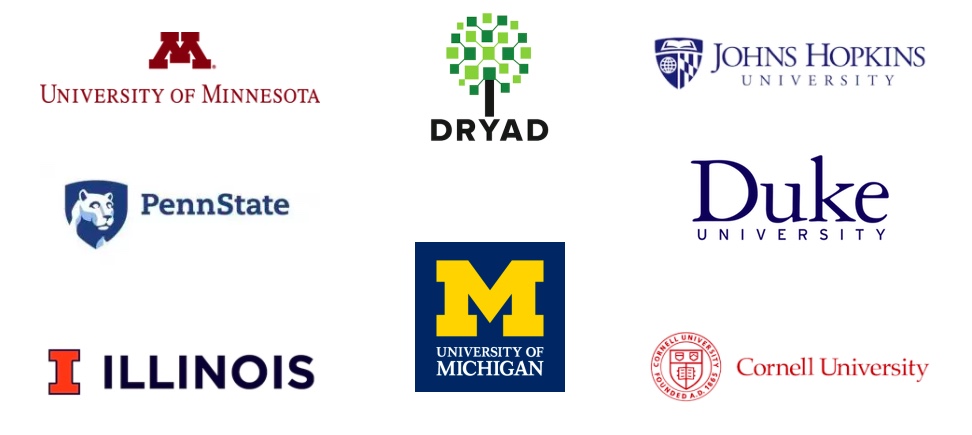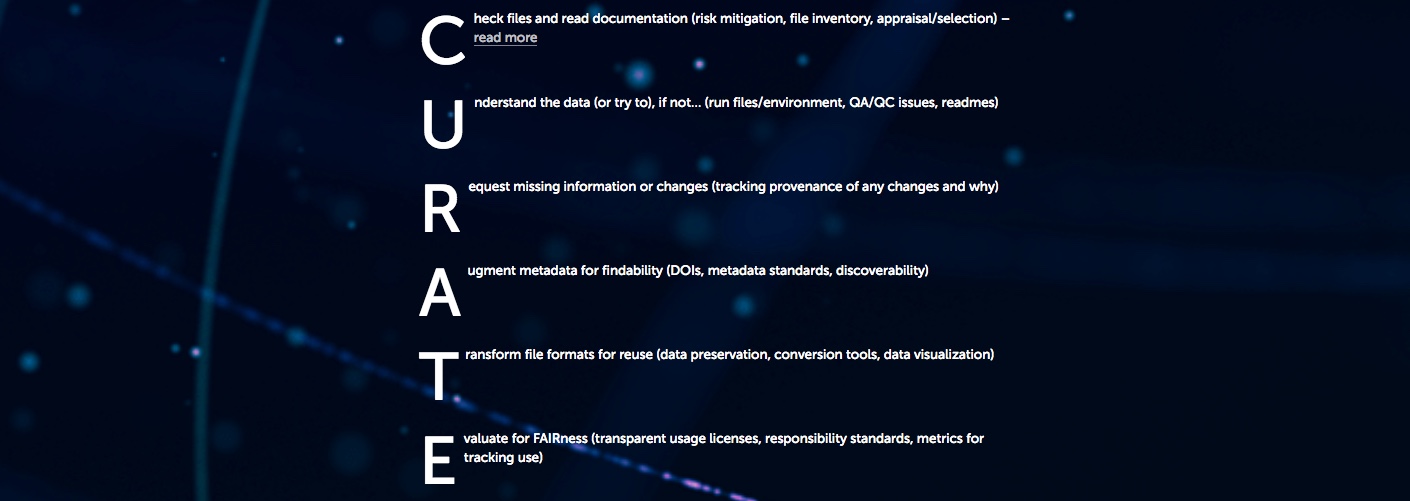In early 2017, Duke University Libraries launched a research data curation program designed to help researchers on campus ensure that their data are adequately prepared for both sharing and publication, and long term preservation and re-use. Why the focus on research data? Data generated by scholars in the course of their investigation are increasingly being recognized as outputs similar in importance to the scholarly publications they support. Open data sharing reinforces unfettered intellectual inquiry, fosters transparency, reproducibility and broader analysis, and permits the creation of new data sets when data from multiple sources are combined. For these reasons, a growing number of publishers and funding agencies like PLoS ONE and the National Science Foundation are requiring researchers to make openly available the data underlying the results of their research.
But data sharing can only be successful if the data have been properly documented and described. And they are only useful in the long term if steps have been taken to mitigate the risks of file format obsolescence and bit rot. To address these concerns, Duke’s data curation workflow will review a researcher’s data for appropriate documentation (such as README files or codebooks), solicit and refine Dublin Core metadata about the dataset, and make sure files are named and arranged in a way that facilitates secondary use. Additionally, the curation team can make suggestions about preferred file formats for long-term re-use and conduct a brief review for personally identifiable information. Once the data package has been reviewed, the curation team can then help researchers make their data available in Duke’s own Research Data Repository, where the data can be licensed and assigned a Digital Object Identifier, ensuring persistent access.
“The Data Curation Network (DCN) serves as the “human layer” in the data repository stack and seamlessly connects local data sets to expert data curators via a cross-institutional shared staffing model.”
New to Duke’s curation workflow is the ability to rely on the domain expertise of our colleagues at a few other research institutions. While our data curators here at Duke possess a wealth of knowledge about general research data-related best practices, and are especially well-versed in the vagaries of social sciences data, they may not always have the all the information they need to sufficiently assess the state of a dataset from a researcher. As an answer to this problem, the Data Curation Network, an Alfred P. Sloan Foundation-funded endeavor, has established a cross-institutional staffing model that distributes the domain expertise of each of its partner institutions. Should a curator at one institution encounter data of a kind with which they are unfamiliar, submission to the DCN opens up the possibility for enhanced curation from a network partner with the requisite knowledge.

Duke joins Cornell University, Dryad Digital Repository, Johns Hopkins University, University of Illinois, University of Michigan, University of Minnesota, and Pennsylvania State University in partnering to provide curatorial expertise to the DCN. As of January of this year, the project has moved out of pilot phase into production, and is actively moving data through the network. If a Duke researcher were to submit a dataset our curation team thought would benefit from further examination by a curator with domain knowledge, we will now reach out to the potential depositor to receive clearance to submit the data to the network. We’re very excited about this opportunity to provide this enhancement to our service!
Looking forward, the DCN hopes to expand their offerings to include nation-wide training on specialized data curation and to extend the curation services the network offers beyond the partner institutions to individual end users. Duke looks forward to contributing as the project grows and evolves.



